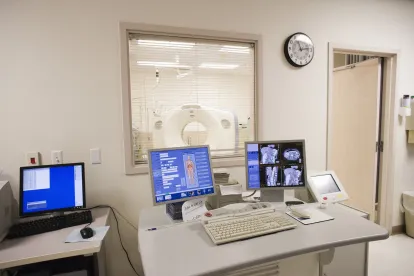In light of the widely reported shortage of personal protective equipment (PPE), ventilators, other medical devices, the U.S. Food and Drug Administration (FDA) is working around the clock to authorize medical supplies for the US healthcare system, including relaxing its rules for importing and distributing PPE and ventilators and their accessories (e.g., vent splitters for multiple patient ventilation). FDA’s policies on permitting uncleared medical devices shift daily toward greater relaxation of regulatory hurdles for suppliers and manufacturers. The most recent policies on PPE importation and use in healthcare settings create more options for healthcare providers and patients in need of ventilatory support and help alleviate bottlenecks of necessary medical supplies in the supply chain.
Importation of Necessary Medical Supplies. On March 24, 2020, FDA announced that it has adjusted its import screening procedures to expedite the import of PPE and other necessary medical supplies.
- Streamlined Entry. Instructions published by the U.S. Customs and Border Protection (CBP) on March 23, 2020, state that products authorized under an Emergency Use Authorization (EUA) granted by FDA, such as ventilators, N95 respirators, and other disposable respirators for use in healthcare settings (described below), limited import information must be submitted to FDA. For other PPE and medical devices that are not authorized under an EUA, but where FDA has issued a broad enforcement discretion policy, such as remote monitoring devices, entry information should be submitted. Due to the severity of COVID-19, CBP announced that it will approve on a case-by-case basis additional days for payment of estimated duties, taxes, and fees. Requests should be submitted to the Office of Trade, Trade Policy and Programs at OTentrysummary@cbp.dhs.gov.
- PPE and Medical Supplies from China. The U.S. currently maintains tariffs on the import of Chinese products, including medical supplies, under Section 301 of the U.S. Trade Act of 1974. The tariffs may be adding as much as 25% to the import cost of critical medical equipment produced in China. However, the CBP has lifted those additional tariffs from the import from China of certain HTSUS categories that cover critical medical supplies, as follows:
| HTS Code | Product Type |
| 3401.19.0000 | Soap and Sanitizer |
| 3926.90.9910 | Goggles |
| 4015.19.0510 | Rubber Protective Gloves |
| 4015.19.0550 | Other Protective Gloves |
| 4818.90.0000 | Toilet paper and tissue |
| 6210.10.5000 | Protective gowns and garments |
| 6307.90.6090 | N95 Masks |
| 6307.90.6800 | Surgical masks and drapes |
- In an effort to keep current on developments in the U.S. fight against COVID-19, the U.S. Trade Representative has opened a docket for the public, businesses, and government agencies to submit comments if they believe modifications to the Section 301 China tariffs (g., lifting tariffs) may be necessary. Each comment must identify the particular product of concern and explain precisely how the product relates to the response to the COVID-19 outbreak. Comments should be submitted via www.regulations.gov, under docket number USTR-2020-0014.
Emergency Use Authorization for Ventilators & Modified Ventilators. Two days after FDA announced an enforcement discretion policy permitting the distribution of uncleared ventilators, ventilator accessories, and gas anesthesia machines modified for use as ventilators (collectively, “ventilators”), FDA issued an Emergency Use Authorization (EUA) for ventilators during the COVID-19 pandemic. The EUA provides clear direction on FDA’s expectations for modified and uncleared ventilators, and waives certain regulatory requirements for ventilators authorized under the EUA, such as good manufacturing practice (GMP) and manufacturer registration and listing.
The EUA identifies product codes of ventilators (and tubing connectors, vent splitters, and other accessories) that qualify under the EUA, and discloses in Appendix A the criteria for safety, performance and labeling of these devices. Appendix B of the EUA identifies specific products (by manufacturer) that FDA has authorized under the EUA. As of March 29, three ventilators and one vent splitter, which allows a single ventilator to be used for multiple patients, has been authorized. FDA will add to the list in Appendix B as devices are authorized.
To be added to Appendix B, companies must submit a request to FDA containing information about the device, including whether the device has been designed, evaluated, and validated in accordance with applicable FDA-recognized standards (listed in Appendix A), manufacturing information, and information to show the device meets safety, performance and labeling criteria under the Conditions of Authorization in the EUA. Labeling requirements include a Fact Sheet for Healthcare Providers administering the device, and a Fact Sheet for Patients. Companies may submit requests for authorization to CDRH-COVID19-Ventilators@fda.hhs.gov.
Emergency Use Authorizations for Respirators, Face Masks. The National Institute for Occupational Safety and Health (NIOSH) approves filtering facepiece respirators for industrial use in non-healthcare settings. Since early March, FDA has permitted the use of certain non-powered respirators approved by NIOSH as air-purifying particulate filtering facepiece respirators (FFRs) in healthcare settings. In response to the continued shortage of FFRs, such as N95 respirators, FDA revised its EUA letter of authorization on March 28 to no longer require requests for authorization of certain NIOSH-approved FFRs.
- NIOSH-Approved Respirators. Under the revised EUA authorization letter, manufacturers no longer have to request authorization for their NIOSH-approved respirators. Instead, FDA will notify manufacturers if their respirator models are authorized under the EUA program through FDA’s public posting here. To be eligible for authorization, the respirators must be listed on the CDC’s NIOSH Certified Equipment List, which includes non-powered air purifying particulate FFRs (g., N95, N99, N100 and other types) and other powered respirators. The same process applies to expired FFRs (i.e., FFRs that were NIOSH-approved but have since passed the manufacturers’ recommended shelf-life) and have been held in accordance with the manufacturers’ storage conditions in strategic stockpiles. FDA has further authorized reusable respirators and decontaminated respirators that have been decontaminated by an FDA-authorized decontamination system (described below).
- Non-NIOSH-Approved Respirators. Under FDA’s letter of authorization, certain non-NIOSH approved respirators are permitted for use in healthcare settings when used in accordance with CDC recommendations to prevent exposure to biologic airborne particulates. Authorized respirators include: (1) disposable FFRs of a specific product class from Australia, Brazil, Europe, Japan, Korea and Mexico been designed, evaluated, and validated to meet specific performance standards, and (2) disposable FFRs that have marketing authorization in the EU, Australia, Canada, and Japan. In conjunction with a March 29, 2020 letter authorizing the Battelle Decontamination System (details below), FDA has further authorized the use of non-NIOSH-approved respirators that have been decontaminated pursuant to an FDA-authorized decontamination system.
Manufacturers or importers must send a request for authorization by email to FDA at CDRH-NonDiagnosticEUA-Templates@fda.hhs.gov with product information, such as the number of respirators to be imported and a copy of the product labeling. FDA will determine whether the disposable respirator meets the criteria under the authorization letter and will reply to the manufacturer or importer. Respirators that do not meet all of the criteria in the letter, including respirators from jurisdictions not identified in the letter, must submit a separate EUA request to FDA. FDA has issued FAQs on non-NIOSH approved respirators, which is available here.
- Reuse of Decontaminated Respirators. On March 29, 2020, FDA authorized the emergency use of the Battelle Decontamination System at the Battelle Memorial Institute (Battelle) for use in decontaminating compatible N95 respirators (those not containing cellulose-based materials) and N-95-equivalent respirators (those listed in Exhibit 1 of the EUA for Imported, Non-NIOSH-Approved Respirators), for reuse by healthcare personnel. FDA authorized Battelle to decontaminate up to 10,000 N95 respirators per day and each respirator may undergo a maximum of 20 decontamination cycles. The Battelle Decontamination System is only for use at Battelle and the system may not be distributed to third parties. FDA instructed Battelle to enter into agreements with healthcare facilities requesting decontamination of its N95 respirators. Healthcare facilities using the decontaminated respirators must issue a Fact Sheet for Healthcare Personnel, monitor potential infection, inspect decontaminated respirators upon receipt, and report any abnormalities or adverse health indications.
FDA has been updating stakeholders frequently here with its evolving policies. The policies are intended to remain in effect only for the duration of the public health emergency related to COVID-19.




 />i
/>i

